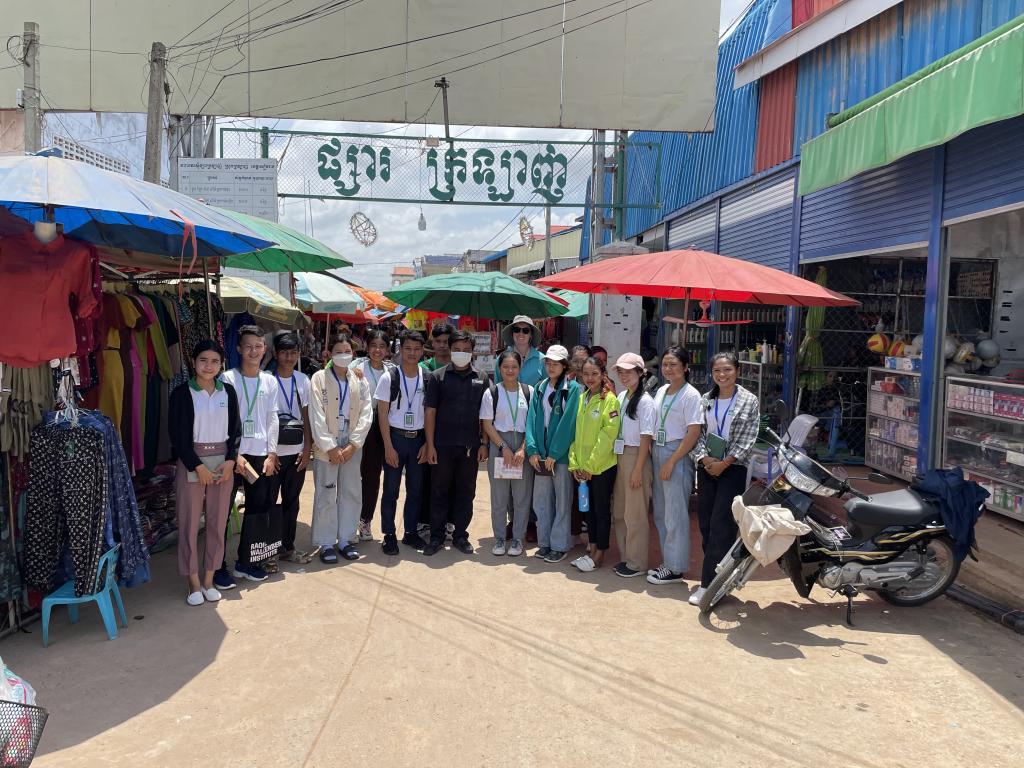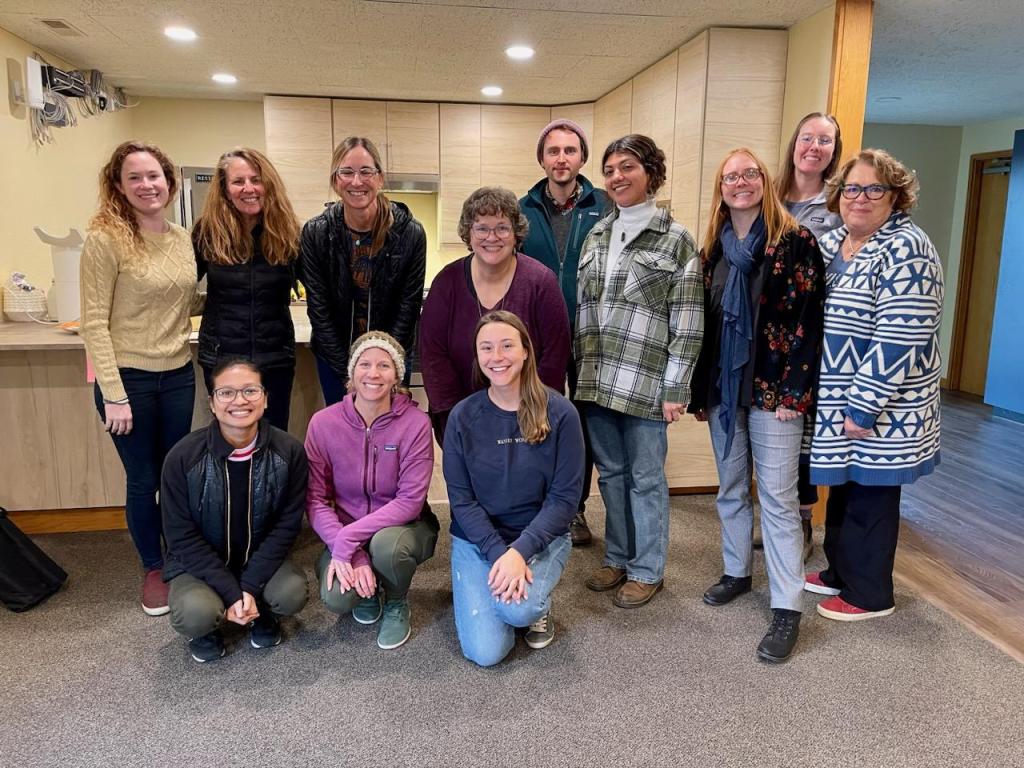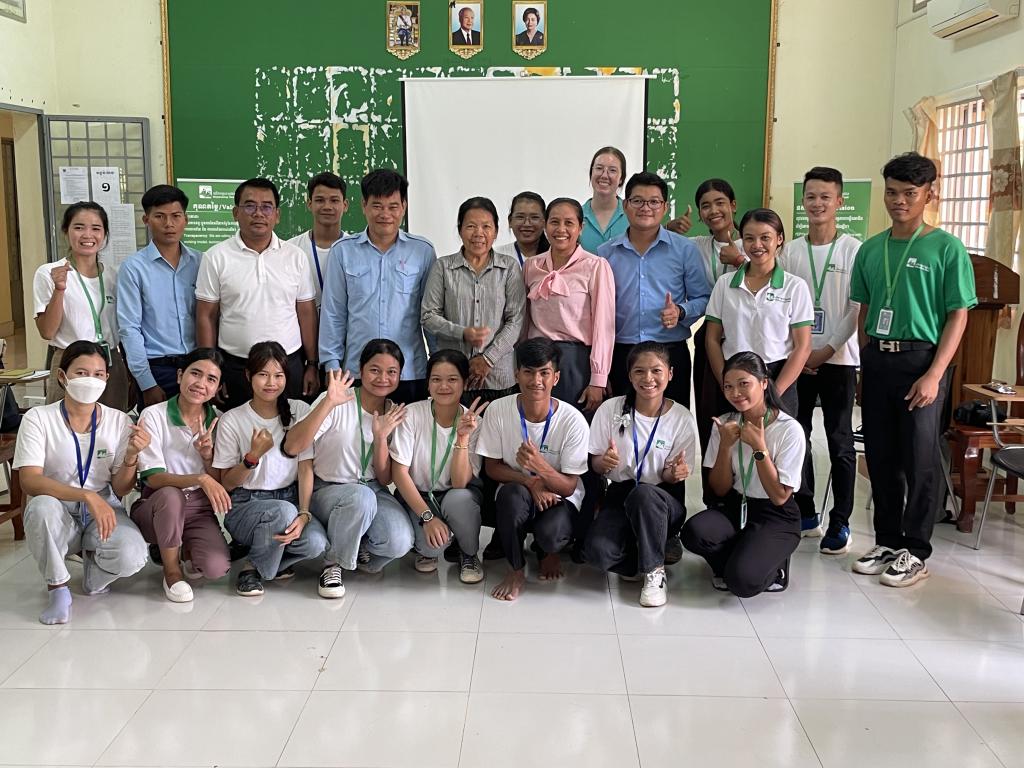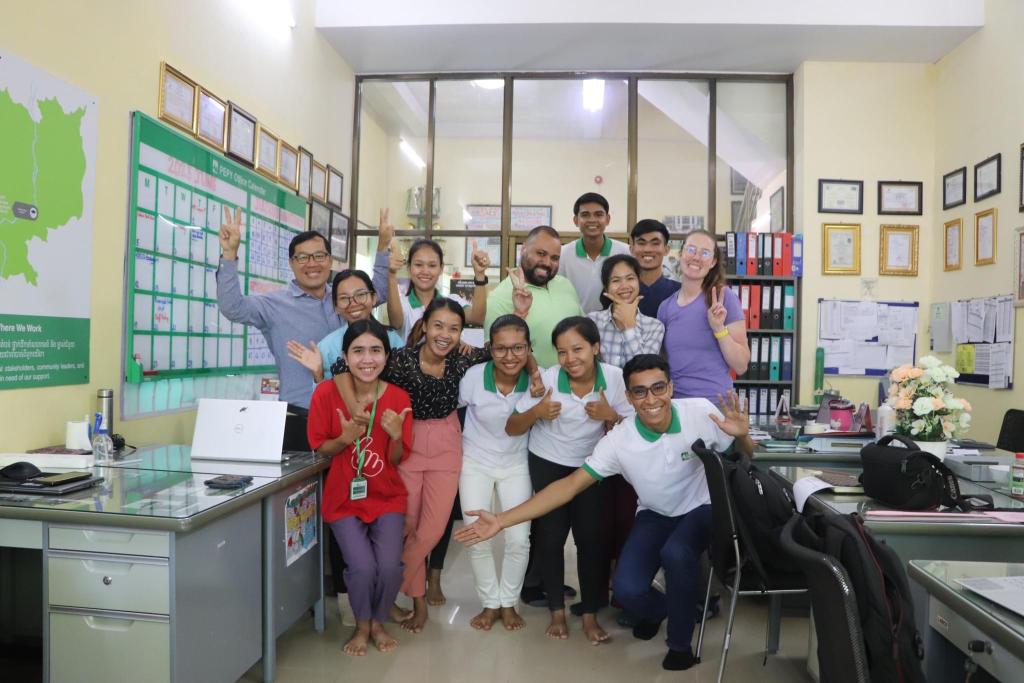By Annie Lamas, July 2023
Roughly 7,500 miles and the Pacific Ocean separate our Prairie House headquarters in Corvallis, Oregon from the PEPY (“Protect the Earth, Protect Yourself”) Youth Empowerment office in Siem Reap, Cambodia, where I spent the first two weeks of June. Thanks to the Community Engagement Project Exchange (CEPex) Grant Program, I had the opportunity to visit Cambodia to learn and contribute to a project that the PEPY scholarship students have been working on in three local villages, focusing mainly on plastic waste education and management in the local markets and schools.

The initial connection between the Institute for Applied Ecology (IAE) and this project began through the Community Engagement Exchange (CEE) Program which is sponsored by the U.S. Department of State, with funding provided by the U.S. government and supported in its implementation by the International Research Exchanges Board (IREX). The CEE Program seeks to enable young civil society leaders “to harness the power of networks, relationships, and information for the public good, specifically on issues related to civic dialogue and peacebuilding, open and participatory government, women and gender, resilience and sustainable development, and youth engagement”.
Through this program, we were introduced to Kim Ann, a young professional with a passion for civic engagement and sustainability. Kim Ann worked for our organization for three months in the fall of 2022, where she helped the Ecological Education Program start a new project from seed, called Park-ify Your Yard. Appropriately named, this project aims to provide education and resources to local Neighborhood Associations in Corvallis and Eugene about the benefits of homeowners and renters planting native plants in their yards. Kim Ann was instrumental in creating brochures, gathering contact information from various Neighborhood Associations, and participating in focus group discussions, among many other things. When she wasn’t working to get this program off the ground, Kim Ann was visiting Oregon parks, natural areas, festivals, and showing off her karaoke skills.

Through this connection via the CEE Program, I was awarded the CEPex Grant which continued this cross-cultural exchange, allowing me to travel to Cambodia and apply my skills and knowledge to their project, just as Kim Ann had done with us. I traveled with students to the local villages and watched them engage with teachers, parents, principals, school children, market managers, and district governors about the importance of reducing plastic waste and the harms that plastic has on the environment.
Additionally, I hosted a grant proposal writing workshop, where we discussed how to create a budget, what sorts of projects grantors can fund, and how to be a competitive applicant to a grantor. I also provided a project management workshop where we discussed the differences between goals and objectives and identified the skills that each student has that can contribute to their project. When I wasn’t working with the students, I was visiting the beautiful temples and understanding more about what makes Cambodia unique through learning the language, visiting the national museum, and trying many local foods. I was even invited to one of the student’s homes to try homemade Khmer noodles and a variety of different fruits that were grown on her property, the best being fresh coconut water straight from the fruit!

IAE and PEPY, though different at their core, have something big in common as a whole: we both work to build community. PEPY serves to connect Cambodian youth to the skills and opportunities needed to reach their full potential by offering English classes, IT classes, soft and hard skills training, and the youth empowerment project mentioned above. By empowering youth with the skills needed to be successful, they are able to be role models and leaders in their local communities and instill positive change in the ecological community around them. As second and third generation survivors of the Khmer Rouge genocide, Cambodia’s youth comprise about 65% of the population. Focusing efforts here will surely result in a more connected, deeply engaged population that focuses on solving the issues at hand.
In a similar way, IAE works with local communities, too. Our work focuses on building initiatives with private landowners, local tribes, public agencies, institutions, schools, and incarcerated men and women for the purposes of conserving native species and habitats through restoration, conservation, and education. Through this experience, I learned the importance of collaboration among these communities in an effort to solve some of our biggest issues. In particular, the focus groups that the students conducted allowed for the people who would be impacted the most to let their voice be heard in instilling positive change in their communities. IAE works similarly to initiate and maintain relationships with the many communities that are impacted by our conservation efforts, many of which wouldn’t be possible without this collaboration.
I appreciate IREX for providing this opportunity, IAE and the Ecological Education program for their continued support of this exchange, and PEPY for hosting me and providing a very meaningful experience.

